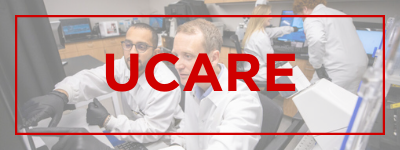UCARE: Undergraduate Creative Activities and Research Experiences

UCARE: Research Products
Date of this Version
4-2016
Document Type
Poster
Citation
Spring 2016 Research Fair poster, University of Nebraska-Lincoln.
Abstract
The Unites States, while being one of the richest countries in the world, ranks 17th in science proficiency out of 31 countries. New techniques for teaching are needed if the US wants to keep up with increasing global competition. Often the problem with traditional methods for teaching biological processes is that they present the material as linear or causal, when in fact there is a much wider network at play. For example, cellular respiration is often represented as a linear process that always starts with glucose and always ends with ATP and water. However, there are several entry and exit points of cellular respiration that interact with other metabolic pathways and are additionally controlled by allosteric regulation based on cellular conditions. This sort of big-picture view is rarely seen in general biology and thus gives a misleading representation of how the cell undergoes cellular respiration.Computer modeling and technology-based methods for analyzing scientific information is quickly becoming the norm in advanced scientific labs, a trend that should also be reflected in the classroom. Exposing students to computer modeling programs now allows them to be better equipped for this new era of data processing based on bioinformatics. In addition, modeling offers a way for students to visualize behavioral relationships of biological processes, such as gene transcription. This enables students to master material instead of just memorizing it. This research group aims to examine the usefulness of computational modeling intervention (CMI) for the teaching of basic to advanced biological processes through the use of the interactive modeling program, Cell Collective.
PowerPoint slide
Included in
Bioinformatics Commons, Biology Commons, Educational Methods Commons, Science and Mathematics Education Commons


Comments
Copyright (c) 2016 Audrey Crowther, Tomáš Helikar, Nicholas Galt, Joseph Dauer, Heather Berganr, Bryan Kowal